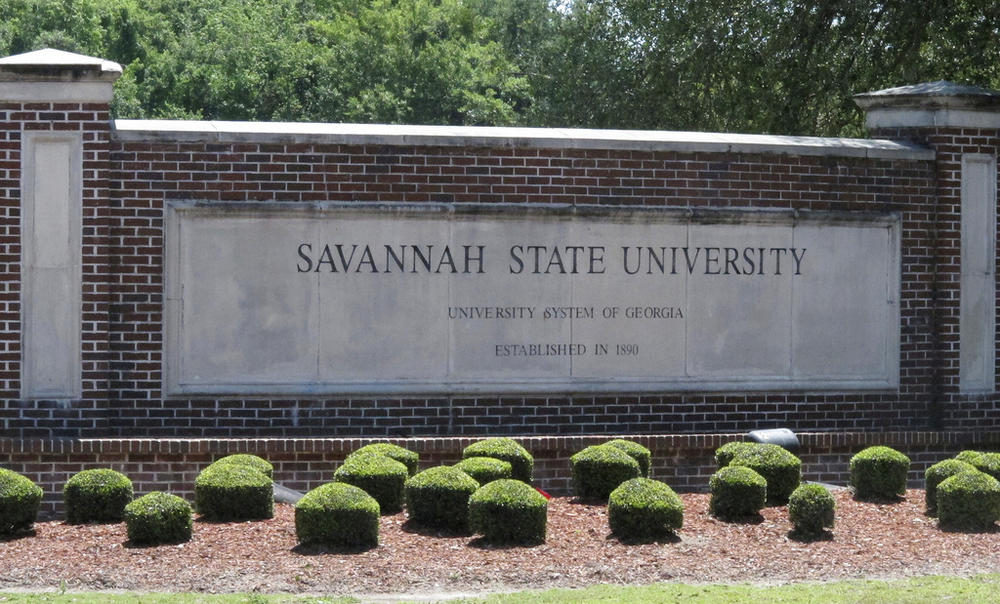
Caption
This Monday, May 1, 2023 photo shows the main entrance to Savannah State University in Savannah, Ga. Savannah State President Kimberly Ballard-Washington is resigning as leader of Georgia's oldest historically Black public university amid financial challenges that include employee layoffs and a faculty revolt against one of her top administrators.
Credit: AP Photo/Russ Bynum

